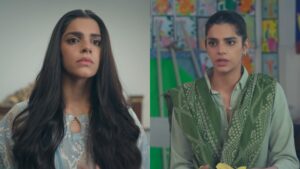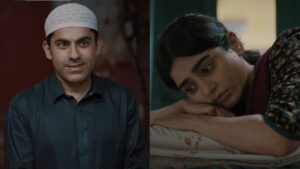We need to talk about the rishta culture in our country and how it solely revolves around diminishing the value of women around how men prefer them to be. It has never encouraged women to seek partners that care and respect them, and only reinforces the insecurity women feel about their bodies and career aspirations.
Twitter had a discussion today on how the rishta culture creates double standards in how men and women form expectations about the kind of partner they wish to have, and it’s very revealing how women are the ones made to limit their expectations because of the kind of restrictions regarding age, skin color and education have imposed on them.
This user opened the conversation by pointing out how men are always privileged to have expectations about the kind of partner they desire to have, while women are consistently pressurized to keep their standards low since they consistently lack something to be considered a worthy bride
To the men worried about not earning enough to get a ‘good’ rishta, I would advise marrying into poorer families for whom your circumstances would be an improvement. Just like women in their late 20s are advised to settle for buddha babas or divorced uncles with multiple children
— OhChiefestAndGreatestOfCalamities (@mustyoumustard) March 21, 2022
The Twitter user further elaborated on how the rishta culture restricts women from having a decision about the type of partner they wish to marry, by holding ridiculous standards about the kind of jehaiz expected by the in-laws, looks, and whether the woman is well educated or not. Because of this, more women are told that they should simply be grateful for simply getting a proposal.
So many single women in their early 30s, women who are considered ‘unattractive’ by desi conventions, women who’s families cannot afford the jahaiz who would be happy to marry a man earning 70k, my brother please expand your rishta pool, lower your standards
— OhChiefestAndGreatestOfCalamities (@mustyoumustard) March 21, 2022
The entire reality about rishta culture is how women have to go through ridiculous trials and tests that question every single aspect of their lives. Men are privileged enough to have everything handed to them on a plate.
The funny thing is that men don’t even go through the rishta process per se. Women are the ones who actually have to be polite and serve tea to the people who will reject them over dumb shit like the colour of their skin.
— OhChiefestAndGreatestOfCalamities (@mustyoumustard) March 21, 2022
Soon this pulled other women into a discussion about the toxic nature of rishta culture, and how it is built upon the notion that women should be submissive and willing to put up with any man. But more women today are learning to celebrate their worth and independence and will not end up with a nobody simply because “log kya kahen gay”
If it wasn’t because of arrange marriages and toxic rishta culture, I bet any woman would even consider the fact that these men exist. It’s a centuries old abuse manipulating women into submission. The moment women don’t abide by this structure, it insecures men 1/2 https://t.co/8jXMV15T38
— qinzaa (@auratsoch) March 21, 2022
I’m 28 and wayy past the age where I would get ‘achay rishtay’
Throw in the compromise on ethnicity/sect and I’m literally expected to agree to the next rishta https://t.co/cutfsU9SDQ— Mega Hertz (@inininnerpeace) March 21, 2022








